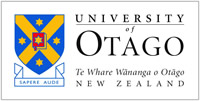Next Generation Study
The Next Generation Study data collection has now ended due to the COVID-19 pandemic causing significant delays, in addition to lack of funding.
The Next Generation Study started in 2007 but was temporarily halted during 2019 due to lack of funding. At that time, data had been collected from 612 teenagers and their parents, which was a fantastic commitment from our very busy Study member families.
We anticipate resuming data collection on a very limited basis soon and we will be prioritising contacting Study members with children who are about to turn 17 (after which age people are no longer eligible to take part in the Next Generation Study). We grateful to a CRAG grant from the University of Otago that has provided us with bridging funds to continue work on this project. If you are a Study member with a teenager about to turn 17 in 2020, we hope to be in contact with you to see if you and your teen are interested in participating. Click here for more detailed information on what’s involved in the Next Generation Study.
What is the Next Generation Study?
The purpose of the Next Generation Study is to look at the lifestyles, behaviours, attitudes and health of today's teenagers, and see how it has changed from when our original Study Members were 15 years old (in 1987-88). As the child of our Study Member turns 15, we invite them, and their whanau/caregivers, to participate in an assessment. For the young people, this will mean coming into the Dunedin research unit for a range of interviews, questionnaires and measurements. This assessment is scheduled for a school-length day of approximately five hours and consist of:
- Life History Calendar. This calendar provides a way of documenting whanau/family make-up, living arrangements and significant life events throughout the life of the 15 year-old.
- Questionnaires on Self and family perceptions; School and future work aspirations; Activities and pastimes; Eating habits; Self-image; Health and injuries; Ethnicity and perceptions of New Zealand society.
- A computer-based psychiatric assessment (DISC-IV) which has been adapted for young people in New Zealand. The DISC-IV is the world-recognised standard for psychiatric diagnoses.
- A self-administered, computer-based (audio-visual) questionnaire will be used for sexual relationships, alcohol and drug use, gambling and self-harm.
- An assessment of cognitive function.
- Body size measurements: height, weight, body fatness (by body impedance analysis), waist and hip measurements.
- Cardio-respiratory fitness test on a stationary bicycle.
- Measurements of blood pressure using an automatic blood pressure machine.
- Assessment of respiratory health using questionnaires, spirometric lung function and skin-prick tests for common allergens.
- A (painless) dental questionnaire and examination.
- Cheek swab samples for DNA.

The primary caregiver accompanying the 15-year-old to the Unit also completes a Life History Calendar for their child to provide additional information that their child may not be aware of, for example, early life events. They also complete questionnaires about their child’s behaviour, discipline and parental relationships. These interviews take approximately 1.5 hours to complete. Parents who are not primary caregivers also participate, but in a shorter telephone interview.
All information gathered is entirely confidential, and not shared it with anyone else, not even family members.
If you have any questions, or would like to know more about the Next Generation Study, please contact the Manager, Helena McAnally, by email or phone 03 479 5553; or Professor Bob Hancox, Principal Investigator, by email or phone 03 479 8512.
Click below for more details:

